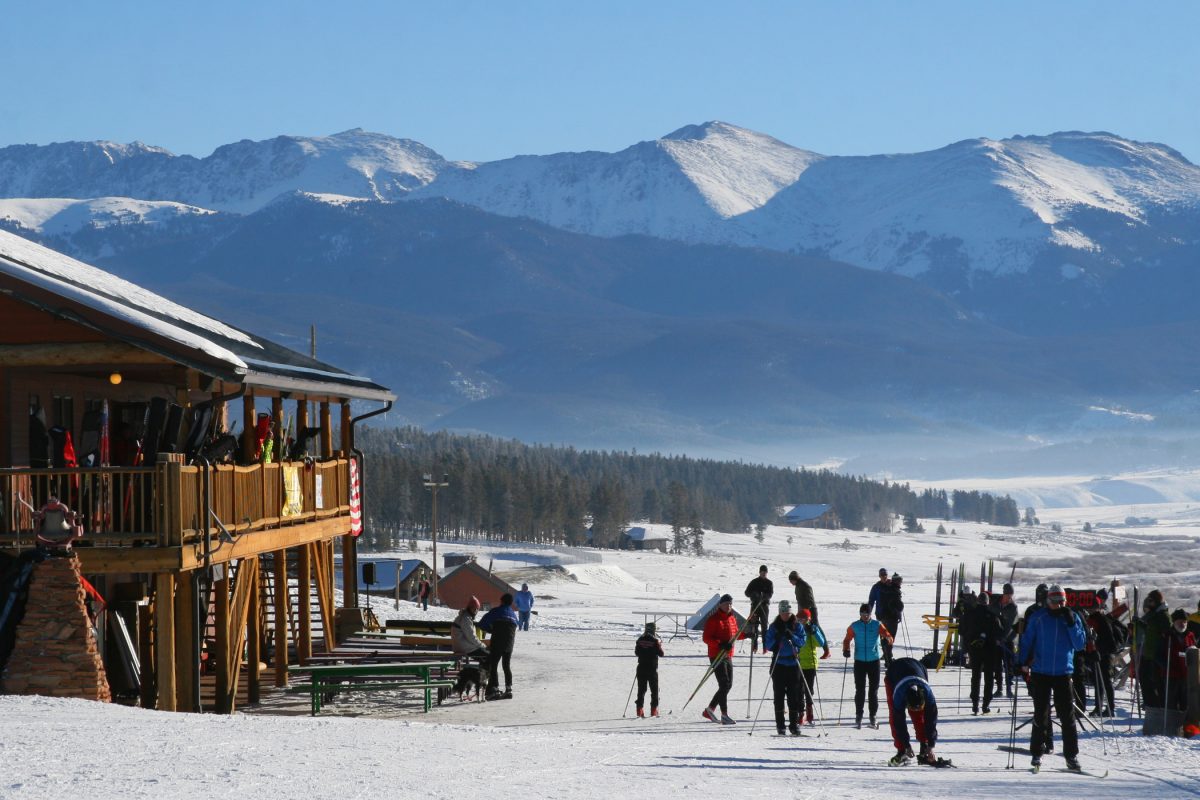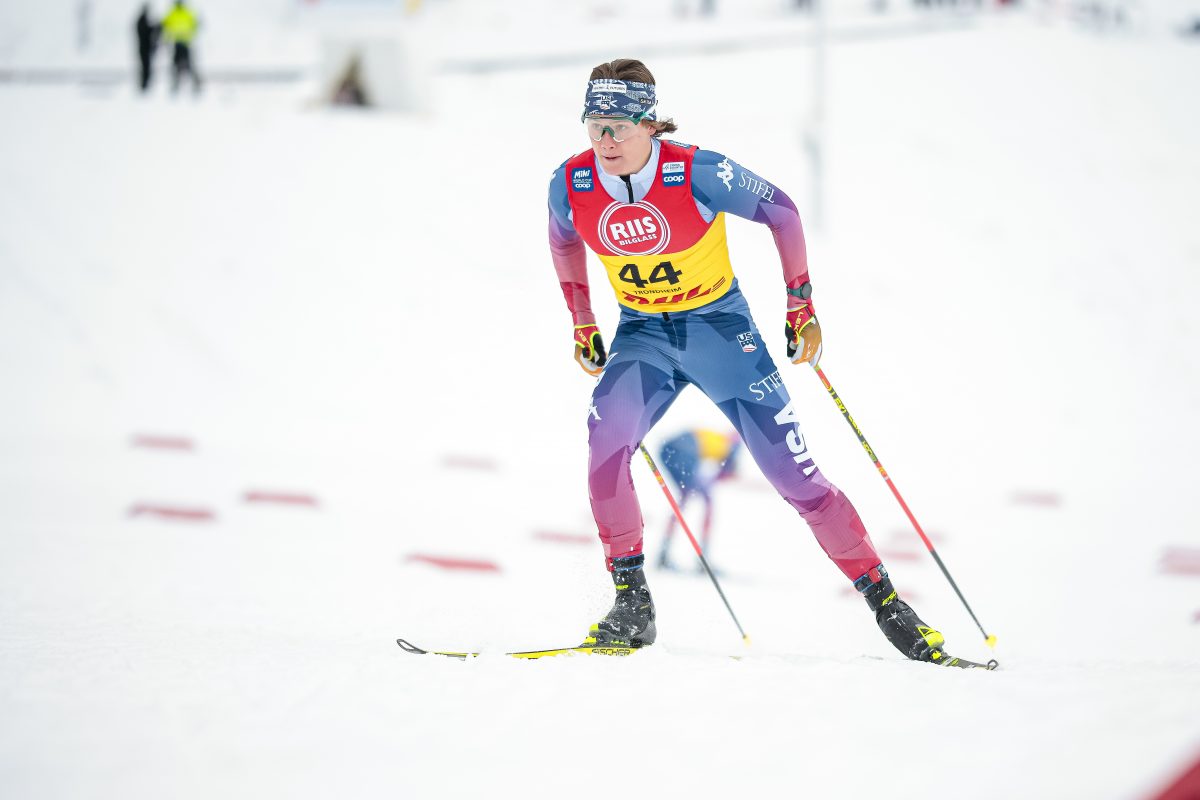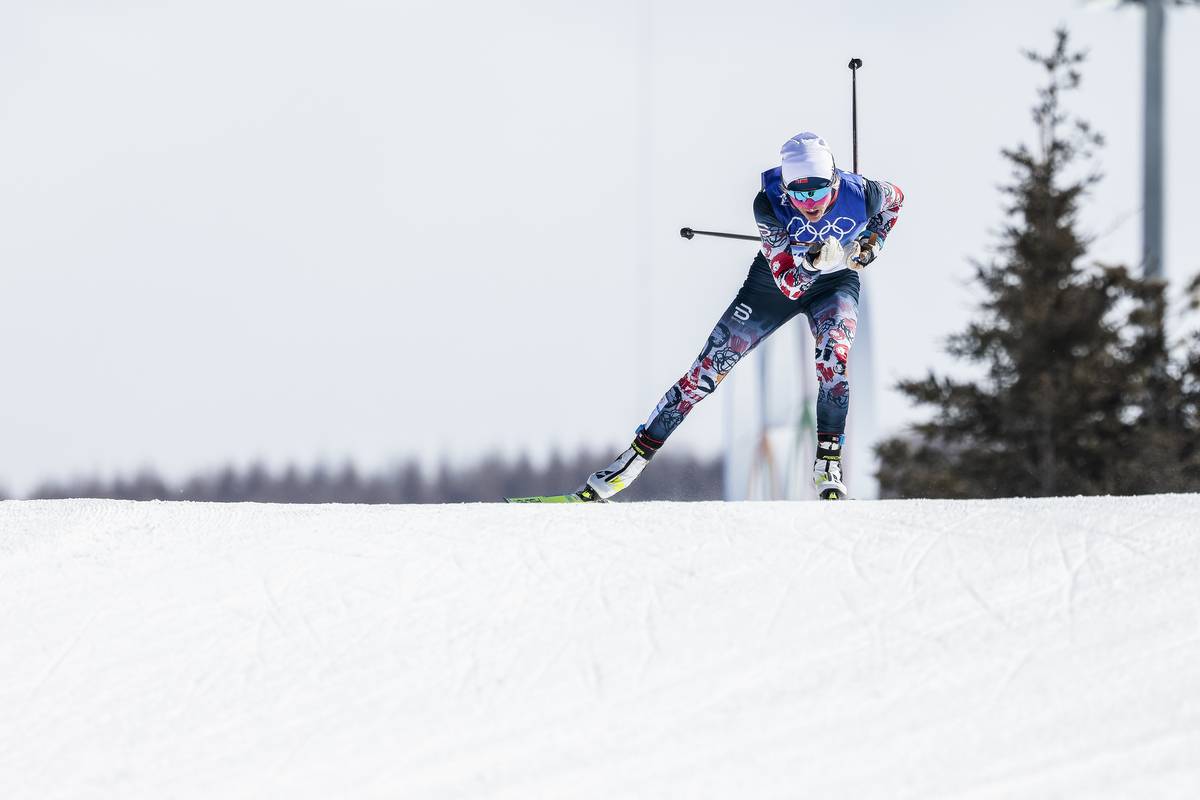The Subaru Primal Quest is now about a day and a half old and our three nordic
skiers are right in the hunt near the front of the race. Justin Wadsworth's
Team Montrail is in sixth place, while Pat & Tracey Cote's Team RacingAhead.com
is right behind them, and certainly turning some heads, with their seventh place
ranking. Pat, Tracey, and Justin must have had an almost unfair advatange on
the second leg, which consisted of rollerblading with ski poles from Lake Tahoe
up to Donner Pass. There is still a lot of racing yet to be done, but so far
so good for the nordic types.
A few multimedia links:
A
picture of Justin rollerblading (with poles), [author's side note: can you
imagine being a non-skiing adventure racer, struggling up Donner Pass on rollerblades,
then having Justin Wadsworth come blasting by you in a full-on, powerful V2
stride? I'd pay money to see the expression on their face.]
Primal Quest – Team Montrail Interview
Primal
Quest – Team RacingAhead.com interview
RacingAhead.com Interview With FasterSkier
The day before the race, Thursday, we caught up with Pat, Tracey and the rest
of Team RacingAhead.com to see how the last minute preparations were going.
FasterSkier: How has being a cross country skier helped you prepare for
adventure racing?
Team Racing Ahead.com: As xc skiers, we started doing "adventure
race" training at a fairly young age. Also, we have learned a lot of skills
related to mental toughness, tenacity, through skiing. At the root, both sports
are endurance based, so there are countless similarities.
Can you give us a couple examples of how training for an adventure race and
training for cross country skiing are similar?
We can't really train for sleep deprivation (since it just kills brain cells,)
so our training is almost exactly the same as an xc skier, except that we don't
find time for rollerskiing much any more.
What are the main adjustments you have
made to your normal training routine because of Adventure Racing?
There are
some obvious diffferences. We train for the specific activities involved in
our races, biking, running, paddling, maybe inline skating. Also, our events
vary in length from 3 hours to 10 days. If we're approaching a 3 hour "sprint"
race we'll do more speed and interval work. For 24 hour races, we'll still do
a lot of intervals since the pace is very fast in those events. For multi-day
events, we prepare mostly with really long workouts. We've found that a normal
xc skiers training week, Mon-Fri, combined with super-long workouts on weekends
works very well in preparing for multi-day races ((usually a 6-8 hour bike one
day, followed by a 6-8 hour hike/run the next.)
Can you put the following in order, from hardest to easiest? And if not, explain
why they are not comparable?
a) 4+ day adventure race
b) 12 hour adventure race
c) 50 km ski marathon
d) A week of ski racing at an event like US Nationals
They are really, really hard to order. I attempted a few times, but can't really
make much sense of it. In a 4+ day race you are going to bonk at least a few
times, in fact, as the race gets longer, sometimes only one or two teammates
are not bonked at any given time. We also deal with the "sleep monster"
which is a really nasty feeling that you get when every piece of you just wants
to go to sleep, but that little tiny bit of competitive drive keeps you going.
Sometimes you can be stuck feeling like this for an hour or so, sometimes for
a whole day. As far as pace goes, a multi-day race can actually be fairly easy…
instead you deal with things like lack of sleep, foot pain/blisters. mental
fatigue, chafing, and general over-use pains.
A 12-24 hour race is very comparable to a ski marathon. Of course it is longer,
but the pace is very similar and mentally you go through pretty similar feelings.
A week of skiing an event like Nationals is really hard to compare. They do
have some adventure racing stage-races (where you get to sleep at night) but
we haven't done any of those yet. Because the races at Nationals tend to be
shorter and very hard, they have a much different effect on the body.
Just for a quick comparison, just think about how you feel at the end of a 3-hour
run in the mountains. The pace hasn't been too fast, but you're pretty hungry
and your feet hurt, and you might have a little chafing here and there. Now
imagine continuing that workout for another 15 hours while carrying a 10lb pack.
That's what a trekking leg of an adventure race feels like. Then you hop on
the bike and do the same thing for 20 hours or so.
In a few sentences, can you describe your favorite adventure racing moment?
Probably all of our favorite experience in adventure racing was shared with
you Cory. Placing 3rd in the Appalachian Extreme in May [with fasterskier.com's
Cory Smith as 4th teamate] was a highlight for us. We had a really fun race
and even though we made some really big mistakes we stayed tough and finished
strong. With just a day to go, we could have easily given up and finished 6th
or 7th, but we picked up the pace when we needed to and really turned some heads.
What are your strengths as an adventure racer, what are your weaknesses?
Tracey – Tracey's one of the strongest women in adventure racing. She likes
to run when most want to walk, she's fast in transitions, and she is very competitive
when things get tough. She's also a really fun and supportive teammate.
Pat – Pat's steady and consistent throughout the long races. The first day always
seems super-fast to him, but as the race wears on, he feels stronger and stronger.
Vytenis – As you know, Vytenis is a great navigator — one of the best in adventure
racing. He's also a very funny, talkative, and supportive teammate. Physically,
he's consistent in all events.
As a team, our weakness is experience. Luckily, we've teamed up with Richard
Anderson, a Kiwi who has experience in last year's Primal Quest (10th) and many
Southern Traverse and Coast to Coast races in New Zealand. He'll be the captain
of our team and he's a great leader, with a good sense of humor and typical
Kiwi modesty.
How has your training for the Primal Quest been different from past races?
We trained in fear a lot more than usual. This is a scary race, there's no other
way to put it. 475 tough mountain miles. The winning team will probably finish
on the 5th day. We are going to be rappelling 500 or more feet on a single rope
on a very exposed ledge, we'll be ascending up a fixed rope for 1000 feet of
elevation gain. We will be doing 275 miles of biking, 120 miles of trekking,
and 80 miles of paddling. So we trained with this fear. It wasn't hard to get
out the door because we knew that every mile that we pounded our feet in preparation
for this race might mean a little less pain on day 5. We knew that every century
ride on the bike might make our asses hurt a little less on the bike. We also
knew that the competition would be stronger than ever and that we may never
get this opportunity to compete with the world's best again. It was not hard
to get motivated.
You arrived in Tahoe over a week before the race starts, what kind of stuff
are you currently doing to get ready?
We are writing this one day before the race starts. We have the pre-race meeting
at 6PM and the race could start anytime after midnight. Everything about the
race (except distances and disciplines) is a secret until that meeting. Yesterday,
we went through gear and skills checks. It took about 8 hours. Our gear was
checked to make sure we had all of the mandatory equipment, and we were tested
in rappelling, ascending, paddling, and first aid. We even did a lung-capacity
test where Tracey scored only one point lower that Team Nokia-Finland's female
racer, so we were excited about that 🙂 This morning, we sorted food into 9
different bags (last year's race had 9 legs, so we are planning on a similar
layout, and did some other last minute sorting of gear, shopping, etc.
We got here about a week ago. We got in a few long 6 hour mt. bike rides and
runs in the mountains, went on a rafting trip on the river that we think might
be used in the race, and mostly just relaxed.
What is your race strategy?
We want to be very steady. We're looking at a finishing time of 6 days and we're
going to try to go the same pace throughout. We will probably reach the first
transition near the bottom of the top third. We hope to move up from there.
With 100 very strong teams here, a top 10 would be an incredible finish, top
5 would be a dream-finish, and top 20 would represent a very strong result.



